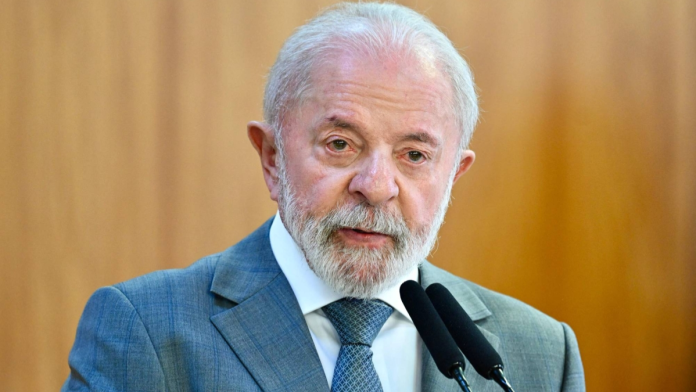Brazil’s President Luiz Inácio Lula da Silva has strongly pushed back against a new 50 percent tariff placed on Brazilian goods entering the United States. He said the measure is not only unfair but also makes no sense for the strong trade relationship between the two countries.
Writing in a U.S. newspaper, Lula described the tariff as “political” and “illogical.” He explained that his government is ready to talk and negotiate on many issues that can benefit both nations. But he made one thing clear: Brazil’s democracy and sovereignty are not open for discussion.
The tariff was introduced in July by U.S. President Donald Trump, who justified the move by linking it to a high-profile legal case involving Brazil’s former leader Jair Bolsonaro. The decision has since raised tensions between the two countries.
Coup ruling sparks fears of more U.S. actions
The dispute comes shortly after Brazil’s Supreme Court ruled that Bolsonaro had attempted a coup following his 2022 election loss to Lula. Judges said he tried to hold on to power illegally, an outcome that has shaken Brazilian politics and drawn global attention.
The ruling followed months of investigations. According to Lula, these probes uncovered plans that included threats against him, Vice President Geraldo Alckmin, and Justice Alexandre de Moraes. He praised the judges for what he called a “historic decision” that protected democracy and upheld the rule of law.
Trump slams Bolsonaro’s 27-year prison term as U.S. weighs punishing Brazil
Still, the verdict has sparked concern that the United States could adopt even more measures against Brazil. U.S. Secretary of State Marco Rubio posted online that Washington “will respond accordingly,” words that were interpreted as a warning. Brazil’s Foreign Ministry quickly fired back, calling Rubio’s comments an inappropriate threat. Officials emphasized that the judiciary in Brazil is independent and that Bolsonaro received full due process during the trial.
Lula also pointed to the economic imbalance in the relationship. He noted that in the last 15 years, the United States has enjoyed a trade surplus of more than $400 billion in goods and services with Brazil. For him, this makes the new tariff even harder to justify.
Bolsonaro under house arrest but appears in public
While the political storm plays out, Jair Bolsonaro made a rare public appearance. He left his home in Brasília, where he has been under house arrest since early August, to undergo a medical procedure.
Escorted by police, Bolsonaro was taken to the DF Star hospital, where doctors removed eight skin lesions for analysis. Medical staff later confirmed he had been discharged and would continue treatment if necessary. Justice Alexandre de Moraes required that he present a certificate showing the date and time of his hospital visit.
Jair Bolsonaro given 27-year prison term after conviction in Brazil coup case
Security around his residence had already been tightened in recent weeks. Police were ordered to inspect all vehicles leaving his home and to keep close watch on the exterior. The strict measures, combined with Sunday’s hospital escort, drew complaints from his son Carlos Bolsonaro, who criticized what he described as “excessive policing” and called the whole situation a “circus.”
Supporters rally behind Bolsonaro
Outside the hospital, dozens of supporters gathered, chanting “Amnesty now!” They carried flags and banners, showing strong loyalty despite his legal troubles. Deusélis Filho, leader of a group of Bolsonaro supporters, said they were there to give him both “spiritual and psychological support.”
For now, Bolsonaro remains under house arrest, monitored with an ankle bracelet. The court’s ruling against him has not yet led to prison time. Judges have up to 60 days to publish their full decision. Once that happens, his lawyers will have a short window to file appeals.
The case, the tariffs, and the diplomatic exchanges have all combined to create a tense atmosphere. President Lula insists that Brazil will not be intimidated and that its democratic institutions will remain firm, no matter the external pressure.
